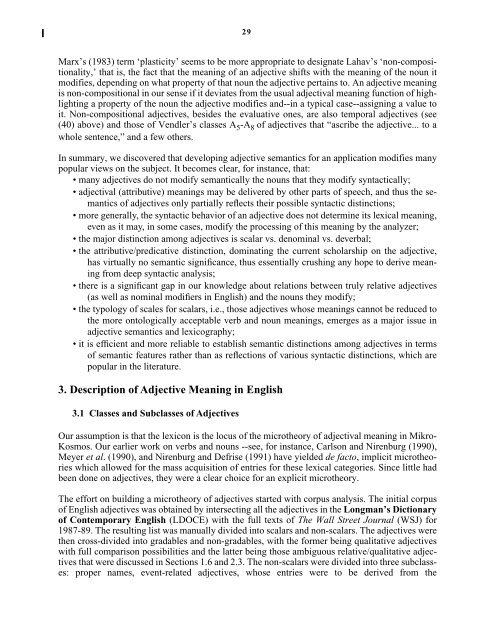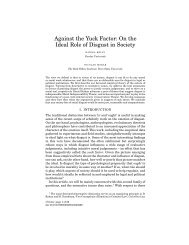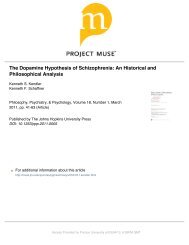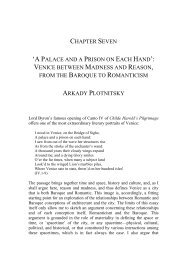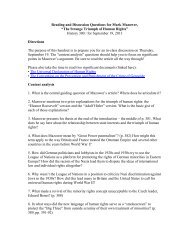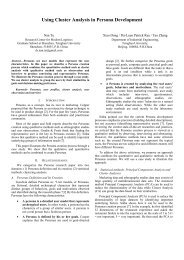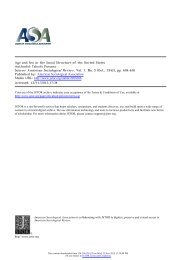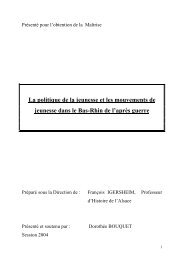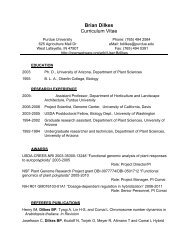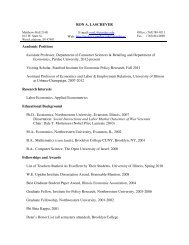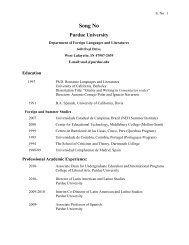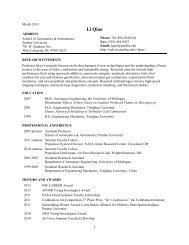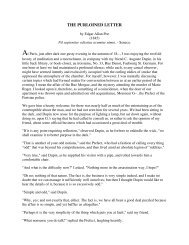Lexical Semantics of Adjectives - CiteSeerX
Lexical Semantics of Adjectives - CiteSeerX
Lexical Semantics of Adjectives - CiteSeerX
You also want an ePaper? Increase the reach of your titles
YUMPU automatically turns print PDFs into web optimized ePapers that Google loves.
29<br />
Marx’s (1983) term ‘plasticity’ seems to be more appropriate to designate Lahav’s ‘non-compositionality,’<br />
that is, the fact that the meaning <strong>of</strong> an adjective shifts with the meaning <strong>of</strong> the noun it<br />
modifies, depending on what property <strong>of</strong> that noun the adjective pertains to. An adjective meaning<br />
is non-compositional in our sense if it deviates from the usual adjectival meaning function <strong>of</strong> highlighting<br />
a property <strong>of</strong> the noun the adjective modifies and--in a typical case--assigning a value to<br />
it. Non-compositional adjectives, besides the evaluative ones, are also temporal adjectives (see<br />
(40) above) and those <strong>of</strong> Vendler’s classes A 5 -A 8 <strong>of</strong> adjectives that “ascribe the adjective... to a<br />
whole sentence,” and a few others.<br />
In summary, we discovered that developing adjective semantics for an application modifies many<br />
popular views on the subject. It becomes clear, for instance, that:<br />
• many adjectives do not modify semantically the nouns that they modify syntactically;<br />
• adjectival (attributive) meanings may be delivered by other parts <strong>of</strong> speech, and thus the semantics<br />
<strong>of</strong> adjectives only partially reflects their possible syntactic distinctions;<br />
• more generally, the syntactic behavior <strong>of</strong> an adjective does not determine its lexical meaning,<br />
even as it may, in some cases, modify the processing <strong>of</strong> this meaning by the analyzer;<br />
• the major distinction among adjectives is scalar vs. denominal vs. deverbal;<br />
• the attributive/predicative distinction, dominating the current scholarship on the adjective,<br />
has virtually no semantic significance, thus essentially crushing any hope to derive meaning<br />
from deep syntactic analysis;<br />
• there is a significant gap in our knowledge about relations between truly relative adjectives<br />
(as well as nominal modifiers in English) and the nouns they modify;<br />
• the typology <strong>of</strong> scales for scalars, i.e., those adjectives whose meanings cannot be reduced to<br />
the more ontologically acceptable verb and noun meanings, emerges as a major issue in<br />
adjective semantics and lexicography;<br />
• it is efficient and more reliable to establish semantic distinctions among adjectives in terms<br />
<strong>of</strong> semantic features rather than as reflections <strong>of</strong> various syntactic distinctions, which are<br />
popular in the literature.<br />
3. Description <strong>of</strong> Adjective Meaning in English<br />
3.1 Classes and Subclasses <strong>of</strong> <strong>Adjectives</strong><br />
Our assumption is that the lexicon is the locus <strong>of</strong> the microtheory <strong>of</strong> adjectival meaning in Mikro-<br />
Kosmos. Our earlier work on verbs and nouns --see, for instance, Carlson and Nirenburg (1990),<br />
Meyer et al. (1990), and Nirenburg and Defrise (1991) have yielded de facto, implicit microtheories<br />
which allowed for the mass acquisition <strong>of</strong> entries for these lexical categories. Since little had<br />
been done on adjectives, they were a clear choice for an explicit microtheory.<br />
The effort on building a microtheory <strong>of</strong> adjectives started with corpus analysis. The initial corpus<br />
<strong>of</strong> English adjectives was obtained by intersecting all the adjectives in the Longman’s Dictionary<br />
<strong>of</strong> Contemporary English (LDOCE) with the full texts <strong>of</strong> The Wall Street Journal (WSJ) for<br />
1987-89. The resulting list was manually divided into scalars and non-scalars. The adjectives were<br />
then cross-divided into gradables and non-gradables, with the former being qualitative adjectives<br />
with full comparison possibilities and the latter being those ambiguous relative/qualitative adjectives<br />
that were discussed in Sections 1.6 and 2.3. The non-scalars were divided into three subclasses:<br />
proper names, event-related adjectives, whose entries were to be derived from the


